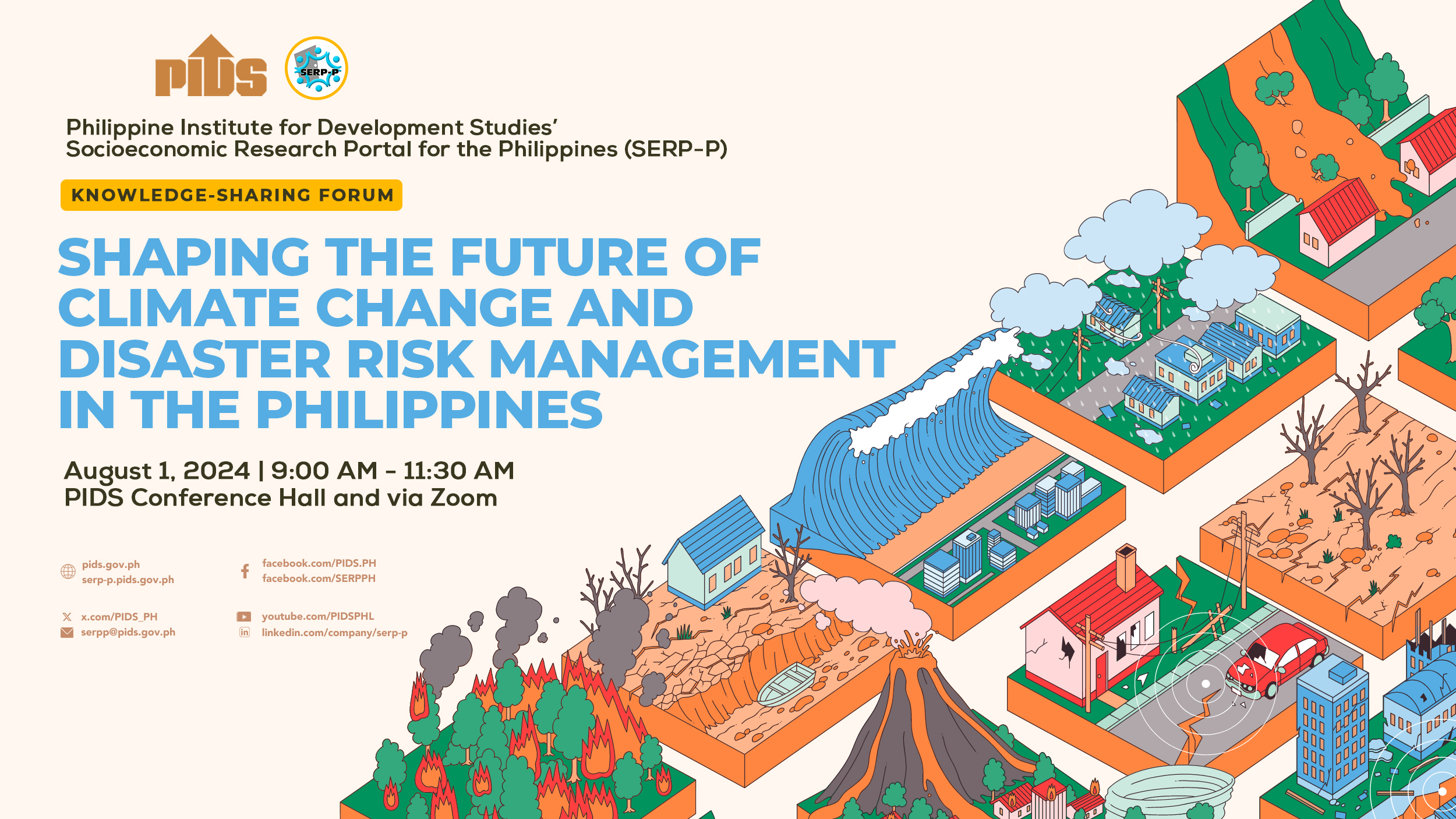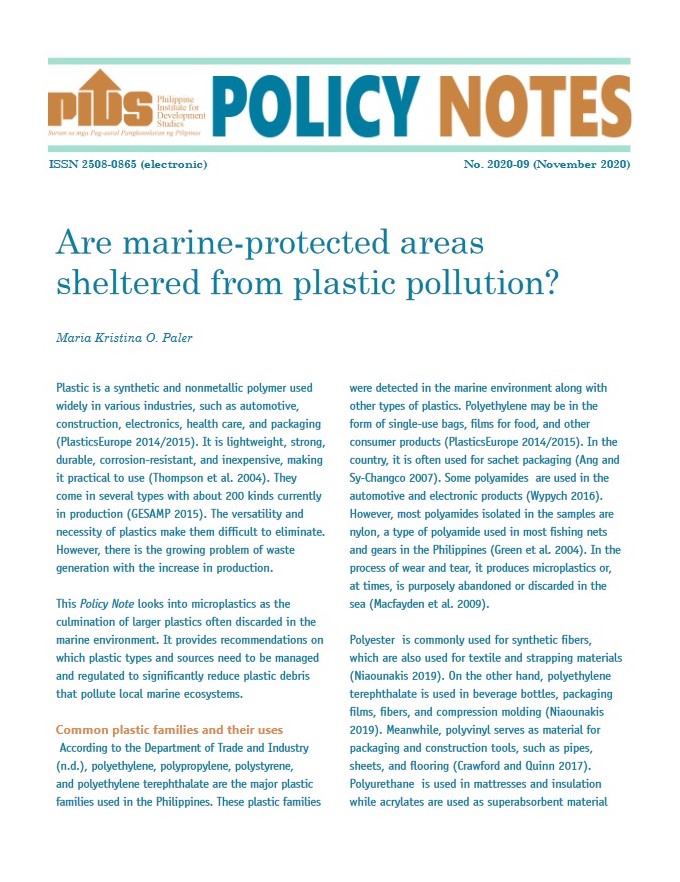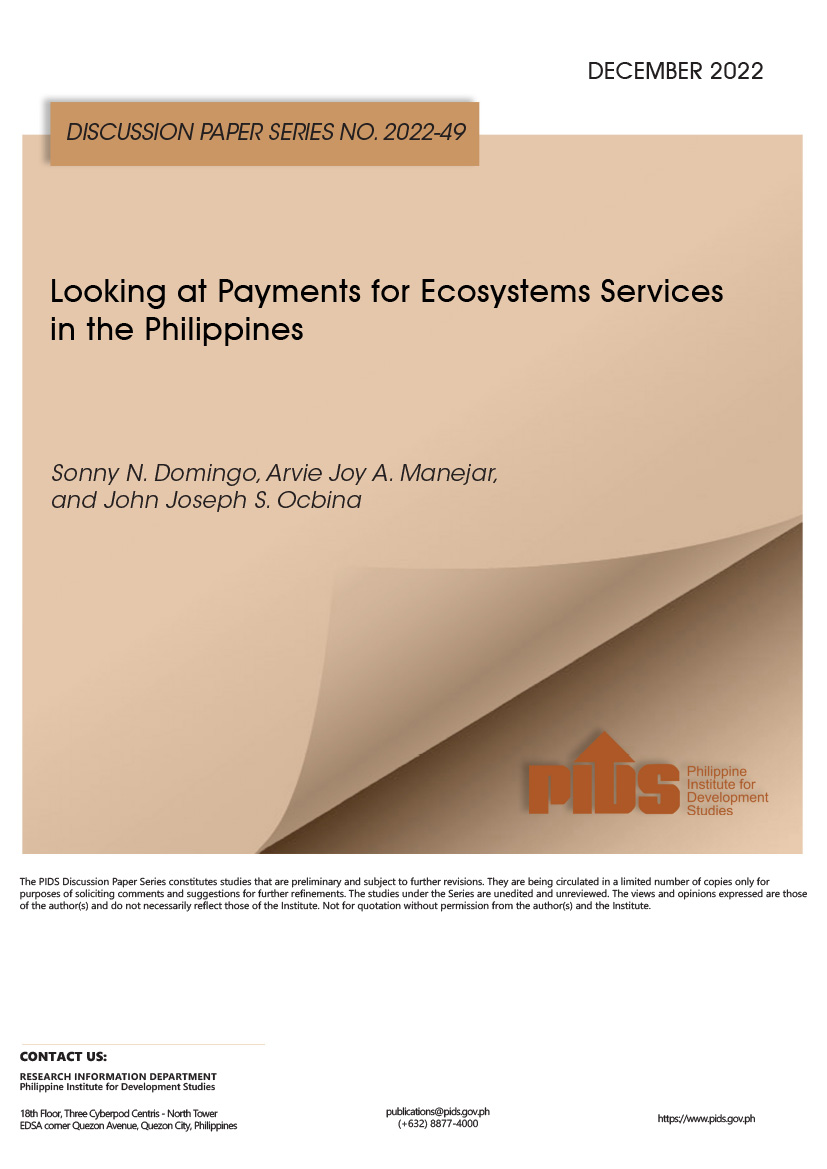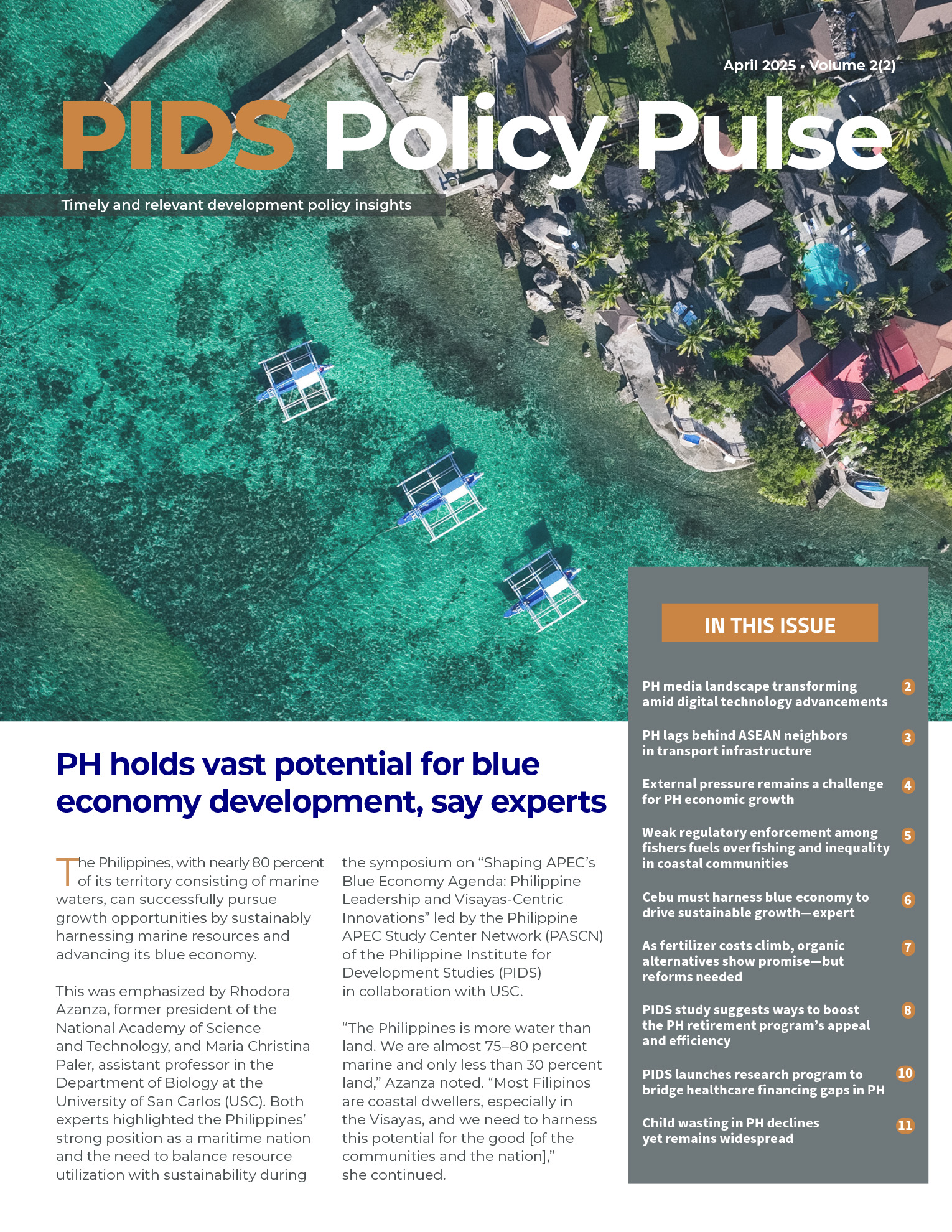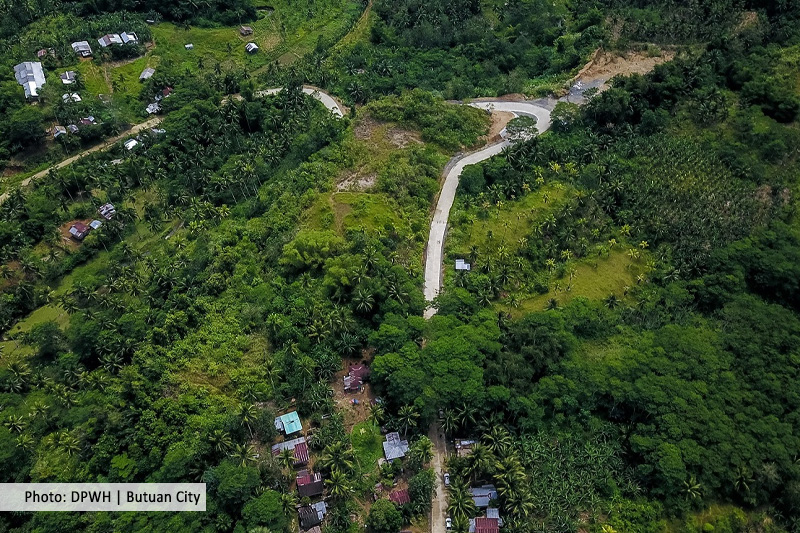
As climate change continues to threaten communities worldwide, experts advocate for integrating nature-based solutions into infrastructure planning, climate change adaptation, and disaster risk reduction efforts.
In a recent webinar hosted by the Philippine Institute for Development Studies (PIDS) through the Socio-economic Research Portal for the Philippines (SERP-P), Assistant Professor Samantha Geraldine Delos Santos from the University of the Philippines Los Baños - College of Public Affairs and Development highlighted the transformative potential of nature-based solutions in building resilient communities.
“Given the recent flooding in Metro Manila due to a typhoon, it is crucial to consider how we can leverage nature to address our current societal issues,” said Delos Santos. According to her, nature-based solutions could be the key strategy for achieving sustainable development by leveraging the power of ecosystems.
Nature-based solutions are actions that work with and enhance nature to address societal challenges, providing benefits for both human well-being and biodiversity. These solutions include activities such as restoring wetlands to reduce flooding, planting trees to improve air quality, and protecting coastal ecosystems to buffer storm impacts.
In her presentation, Delos Santos discussed their project with the World Wildlife Fund for Nature Philippines on the Sustainable Infrastructure Program in Asia, which aims to integrate green strategies into sustainable infrastructure planning and development. The initiative focuses on Butuan City as a demonstration site, showcasing how nature-based solutions can be effectively implemented to enhance resilience and sustainability.
“Infrastructure development is essential for economic growth, facilitating the flow of goods and services, and enhancing overall economic efficiency,” Delos Santos noted. However, she pointed out that traditional infrastructure projects can lead to habitat fragmentation, biodiversity loss, and increased carbon emissions. Delos Santos explained that nature-based solutions provide a way to mitigate these negative impacts by incorporating natural processes into development initiatives, thereby creating more sustainable and environmentally friendly projects.
The project’s objectives are to provide practical tools and resources to help planners and policymakers make informed decisions about integrating nature-based solutions into their projects. By doing so, they believe they can help ensure that development is both sustainable and resilient.
The project team conducted extensive data gathering in Butuan City, collaborating with local government units to identify key stakeholders and potential nature-based solutions projects. The team also utilized remote sensing and geographic information system technology to map priority ecosystem services and risk areas, ensuring that the chosen solutions align with the community’s needs and priorities.
Since the concept of nature-based solutions is relatively new, Delos Santos emphasized the need to better understand it. A whole-of-society approach by engaging stakeholders, including local communities, academic institutions, and government agencies, is vital to ensure the effectiveness and longevity of these solutions.
“At the end of the day, it is crucial to make people realize that these projects are ultimately for their benefit. If the community understands the value of nature-based solutions projects and recognizes what they stand to gain, there is a higher chance that they will take care of them,” she explained.
Watch the recording of the webinar at https://bit.ly/pidslive080124. ###

